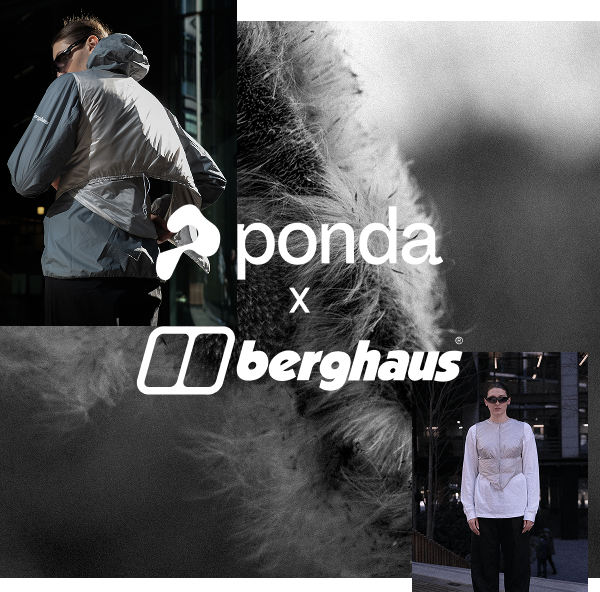
Ponda x Berghaus: Industry Collaboration for a regenerative future
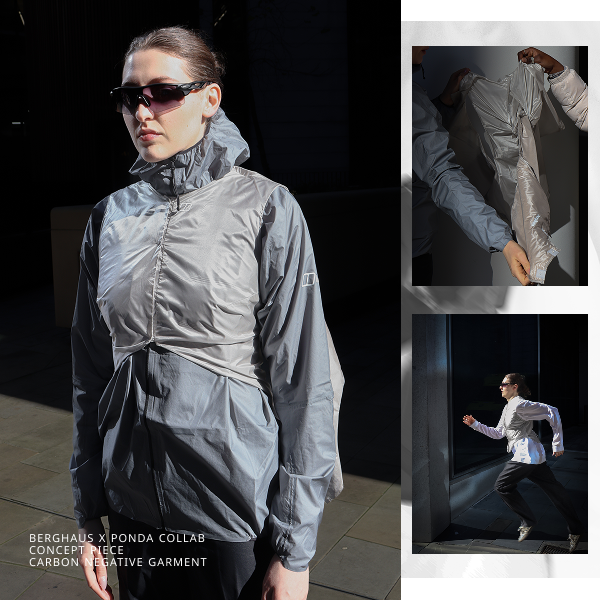
The Concept Piece
In collaboration with UK outdoor-wear brand Berghaus, the Concept Piece demonstrates how regenerative materials can be integrated into performance outerwear without compromising function. The jacket is insulated with BioPuff® and BioPuff® Wadding, offering a versatile approach to warmth. Designed with removable components, it allows the wearer to adjust insulation levels based on activity and climate. The modular system also enables a choice between loose fill or wadding, giving flexibility to the jacket’s appearance and functionality.
The jacket contains BioPuff that was sourced and processed entirely in Europe. By incorporating regenerative biomaterials at this scale, the Concept Piece showcases how functional, adaptable, and responsible outerwear can be made.
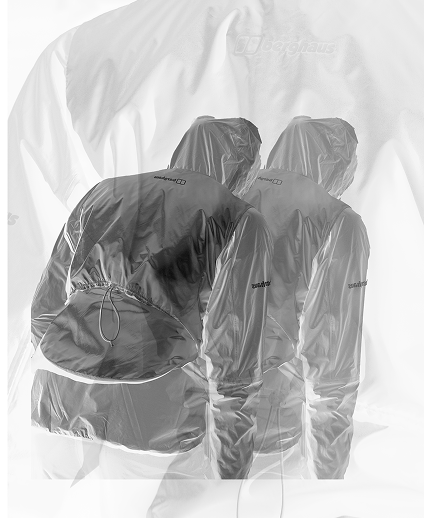
Thermal Balancing
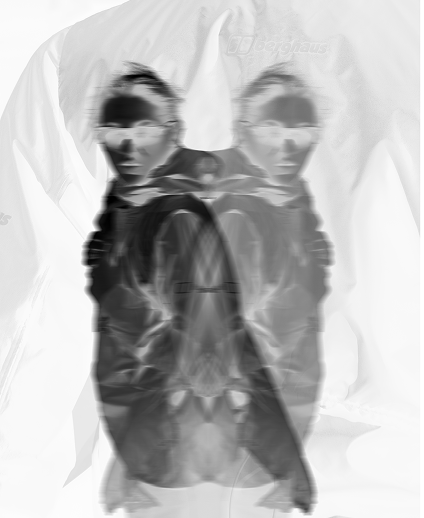
Multifunctionality
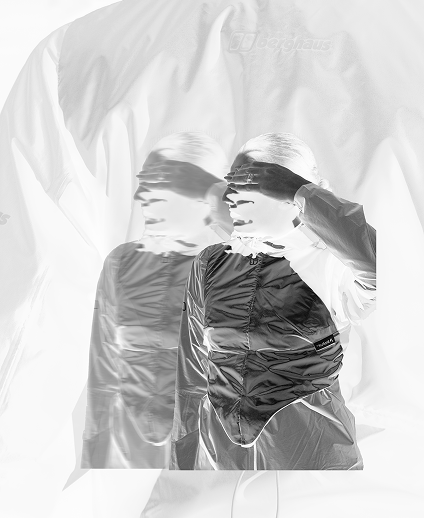
Female-First Design
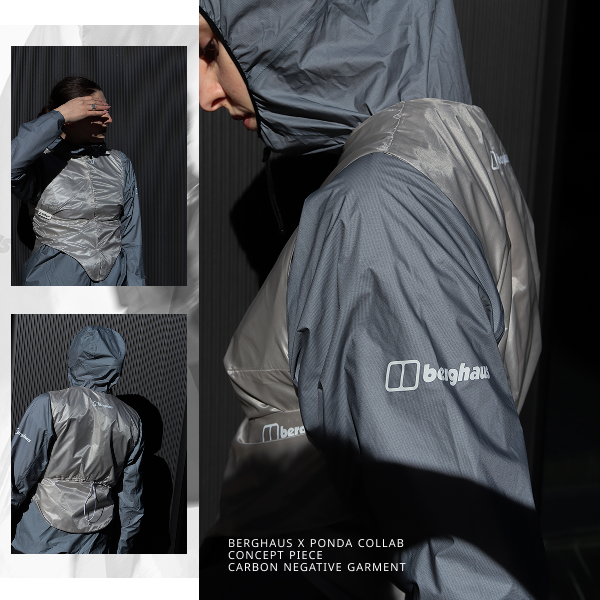
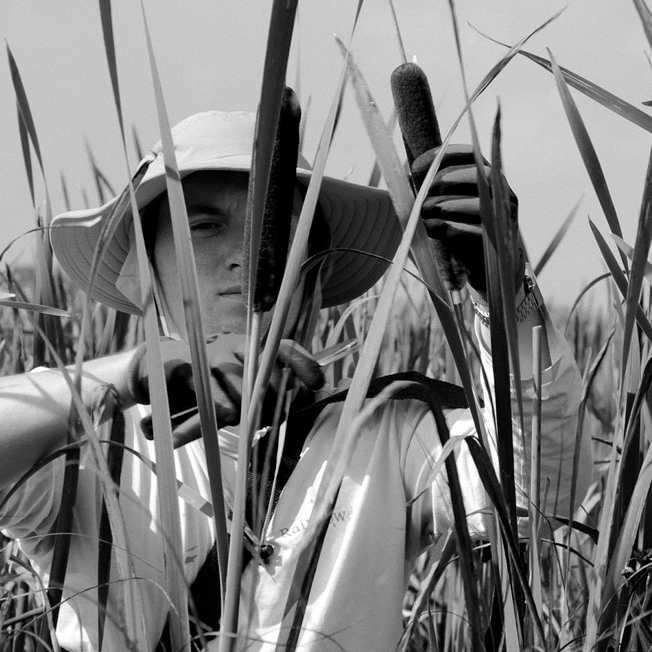
Wetlands: a super-carbon store
Unfortunately, hundreds of millions of wetlands have been drained around the world, releasing nearly 2 gigatonnes of CO₂ every year — more emissions than the entire fashion industry. This is primarily for farming, as the peaty soils can produce highly productive land. However, by draining the water from a wetland, you expose the carbon-rich land to the atmosphere, enabling the soils to quite literally dissolve away.
Our only hope to stop these emissions is to re-wet the wetlands and lock the carbon back into the ground - but what about the farmers who are relying on these
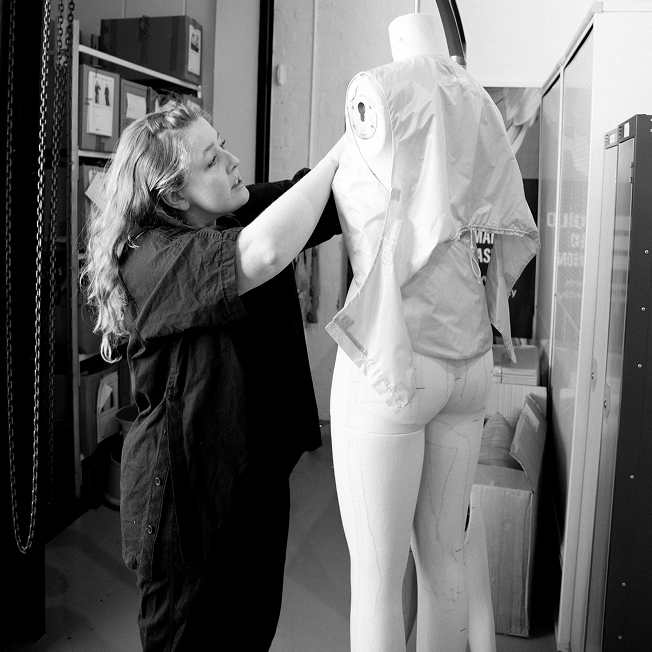
Life Cycle Impact
- 3.4 kg CO₂ eq per kg of BioPuff®, which is 88% lower than goose down and 19% lower than polyester fibre.
- 0.4 m³ water use per kg, utilising naturally occurring wetland crops rather than irrigation.
- Full traceability, from wetland to textile.
In addition, our wetland-regenerating supply chain creates further benefits by increasing biodiversity, cleaning water and building climate resilience into farms.
Fashion Enter
The garment was made at Fashion-Enter Ltd (FEL) which in London FEL is an award-winning social enterprise. FEL is a centre of ethical garment manufacturing with a leading status in the Fast Forward audit. FEL opened it's Fashion Technology Academy in 2015 with support from GLA and Haringey Council. It was the first academy in the country that is supported by Government to im- prove technical garment manufacture.